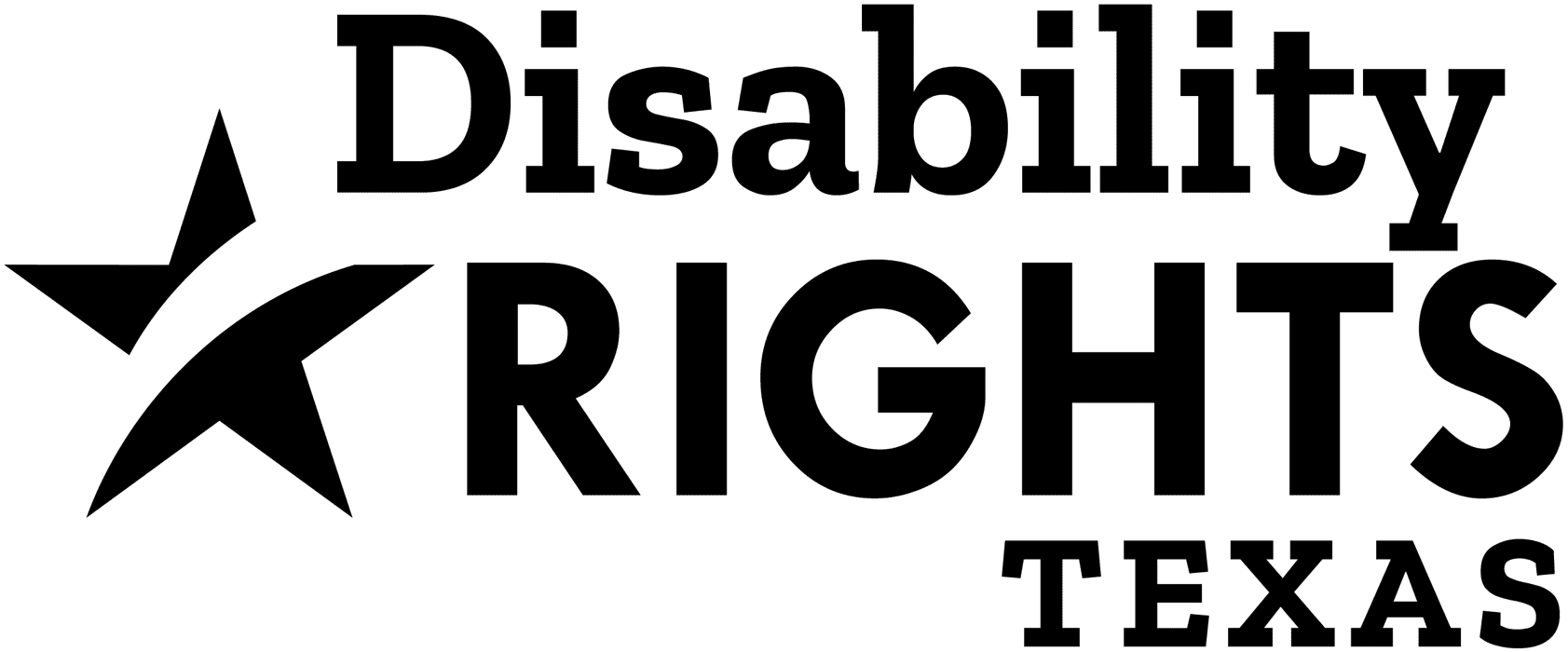Table of Contents
Disability Rights Texas Handout
To request this handout in ASL, Braille, or as an audio file, contact us.
Accessibility and Safety During and After a Disaster or Emergency
- Are you having trouble communicating with people that should help you during a disaster or emergency?
- Is the shelter not accessible because you have mobility impairments? Has the shelter said you cannot bring your service animal to the shelter?
- Are you unable to file an application for help from FEMA because you cannot access their system?
This handout may provide some answers to your questions.
I cannot read or understand the emergency notifications from my city or county. Are they required to provide accommodations so I can read or understand them?
Yes. State and local governments must make sure residents have the information they need to decide what they need to do and then execute those plans. This includes televised communication should have interpretation or captioning services and online information should have screen reader availability.
I have a mobility device or a service animal and the shelter or temporary housing provider has said they will not allow me to come in with my service animal or the shelter or facility is not accessible to me. What do I do?
You should ask the shelter for an accommodation and explain to them what you need. If they deny your accommodation request, you can contact Disability Rights Texas.
What if I do not understand the FEMA application?
If you can not understand the FEMA application, ask FEMA for a translator or anything else you need so that you can understand the process and application. This includes completing the online application on the FEMA Disaster Assistance website at www.disasterassistance.gov, by phone at 1-800-621-FEMA (3362) or 1-800-462-7585 (TTY); or in-person at a shelter or Disaster Recovery Center (when opened). If you cannot understand the application, please reach out to Disability Rights Texas.
I have an immune disorder or use mobility devices. FEMA decides if they will help you based on if the home is safe for someone to live in but they are not taking into account my disability when they decide. For example, my house has holes in the floor and I use a mobility device or my home has mold and it is making me go to the hospital. What do I do?
You should disclose your disability and any needs you have. Also, explain why your disability means you may need something different than someone without a disability. For example, because of your auto-immune disorder you are unable to live in an environment that has mold, you are unable to navigate to the bathroom because there are holes in the hallway and you use a mobility device, or you have a visual impairment and there are holes in the floor. If FEMA has denied your request for the changes you need, please reach out to Disability Rights Texas as soon as possible as you only have 60 days to appeal FEMA’s decision.
I have an auto-immune disorder and my landlord has refused to fix the mold growing in my home. My doctor has said it needs to be fixed or I need to move. What can I do?
You can request an accommodation (in writing) from your landlord that they fix the issue or allow you out of your lease with no penalty.
I receive services through the state that I need to survive. I am not in my home anymore because of the disaster and do not have my services. What do I do?
Contact the individual who oversees your services. In some cases there may be a plan in place for you to get your services somewhere else. If not, contact the HHSC regional program manager for your area, or your local mental and public health authority. If you have to go somewhere else, you can update your information online with HHSC at www.yourtexasbenefits.com/Learn/Home or contact HHSC customer service at 1-877-541-7905.
Have questions or need assistance with any of these issues?
Disability Rights Texas is a nonprofit organization, and there is NO charge for our services. For help, contact us in any of the following ways:
- Call our Intake Line at 1-800-252-9108 (M-F, 9 am to 4 pm)
- Apply online 24/7 at DRTx.org
Created: August 11, 2020
Publication Code: AC26

www.DRTx.org
Statewide Intake: 1-800-252-9108
Sign Language Video Phone: 1-866-362-2851
Purple 2 Video Phone: 512-271-9391
Online Intake available 24/7: intake.DRTx.org
Disclaimer: Disability Rights Texas strives to update its materials on an annual basis, and this handout is based upon the law at the time it was written. The law changes frequently and is subject to various interpretations by different courts. Future changes in the law may make some information in this handout inaccurate.
The handout is not intended to and does not replace an attorney’s advice or assistance based on your particular situation.
Print This Page